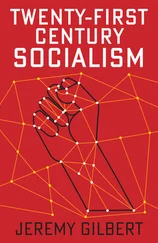But Islamabad does not give up easily. Even while ostensibly allied to the United States in its Afghan war effort, Pakistan preserved its links with several of the extremist elements it had nurtured in Afghanistan, provided refuge to Mullah Omar and his ilk in Quetta, and — as we learned belatedly in 2011—shielded Osama bin Laden and his inner circle in the Pakistani garrison town of Abbottabad. (More recently we have learned that the prolific bin Laden lived, procreated and raised children in Peshawar, Swat and Haripur as well.) The strategy made sense to the devious minds in Rawalpindi: the Americans were bound to tire of their Afghan engagement one day, and when they left Pakistan would need to have the resources and assets in place to reassert the primacy they had enjoyed in Afghanistan before 9/11. The appearance of cooperation in fighting terror was essential to continue receiving generous American military aid, most of which could be used to shore up the Pakistani Army’s overall strengths against India, but the fight had to be carefully waged only against select enemies, while shielding those terrorists who could be counted upon to serve Pakistan’s interests in the longer term. (As the Pakistani journalist Ahmed Rashid puts it, the Pakistani Army ‘seeks to ensure that a balance of terror and power is maintained with respect to India, and the jihadis are seen as part of this strategy’.) The Pakistani military also understood the importance of seeming to look for bin Laden but never finding him, and appearing to fight the ‘war on terror’ but never actually winning it, in order to maintain the continuing flow of American money for the very purposes its beneficiaries were seeking to subvert.
But while US pressure on Pakistan to end this duplicity is vital, it is not enough. International pressure will require serious attention to China’s and Saudi Arabia’s roles as allies of Pakistan, both bilaterally (as munificent donors of aid) and in multilateral institutions (notably the UN Security Council and the Organization of the Islamic Conference, respectively). China and Saudi Arabia have the capacity to reinforce the pressure on Pakistan or to provide Islamabad an escape valve from it; on the whole, it is not clear at this stage which way they will incline. China’s importance to Pakistan is increasing with the gradual American disengagement from Pakistan, and what Beijing calls its ‘all-weather friendship’ shields Pakistan against the negative global fallout from its anti-Indian actions. Nonetheless China is concerned about encouragement given to Islamic militancy in its own western provinces by elements on Pakistani soil, which offers India a point of mutual interest. Engaging China thus becomes indispensable, even if its direct benefits might be minor, given China’s own strategic interest in supporting Pakistan to balance India.
Saudi Arabia’s indispensability to Pakistan comes from its financial assistance as well as its role as the custodian of global Islamic legitimacy. The Saudis have shown in recent years a desire to engage with India, not at the expense of Pakistan, but as a recognition of our country’s international value in its own right. Giving the Saudi — Indian dialogue a security dimension is necessary for both sides, but particularly for an India that needs to sensitize its Saudi interlocutors to the threats and opportunities emerging from Pakistan. Going beyond Saudi Arabia, the role of international aid for development should not be underestimated, since Pakistan’s economy is virtually bankrupt. This could mean that the influence of the United States in the IMF, and the European Union in providing development assistance, could prove considerable, should it be exercised in the direction of promoting more responsible conduct by the Pakistani state. This is more than a pious hope: as David Malone puts it, ‘Pakistan’s weapons suppliers and financiers are hard to sideline, their intelligence findings hard to duck, and the incentives — positive and negative — that they can offer [could prove] impossible for Pakistan to ignore.’
In other words, the world is not bereft of options; we do not have to reconcile ourselves to slipping back to business as usual in Pakistan. For the fact is that, on Pakistan’s reluctance to take decisive action against the terrorism operating on its soil, we do have some credible options. The most significant of these lies in the United Nations, whose Security Council resolutions against terror were adopted under Chapter VII of the UN Charter and are binding on all member states, including Pakistan. The UN has established thirteen international conventions against terror, but years of negotiations on a draft pushed by India and the United States to adopt a comprehensive convention on terrorism have foundered on the objections of Islamic states, which have wanted to include strictures against ‘state terrorism’ and exemptions for ‘national liberation movements’.
However, legal instruments are of limited utility against those who have contempt for international law. More effective could be two mechanisms created by the Security Council. One, the Sanctions Committee established under resolution 1267, has already been pressed into service in December 2008 to proscribe Jamaat-ud-Dawa, with scant impact on Pakistan. The other is resolution 1373, adopted immediately after 9/11, which imposes, under Chapter VII of the UN Charter (which governs enforcement measures), binding requirements on all member states to take a whole range of actions against suspected terror organizations. These include freezing financial transfers and interdicting arms supplies, reporting on the movements of suspected terrorists and upgrading national legislation to bring it into conformity with international requirements. In the event of continued inaction by Islamabad, the possibility of moving the Security Council to hold Pakistan in breach of resolution 1373, and threatening sanctions against the Pakistani state if compliance does not follow, is well worth pursuing. (It might even prompt someone in Pakistan to encash the $10 million reward the US is offering for the arrest of Hafeez Saeed.)
These resolutions require compliance from all states on controlling the activities of terrorists. Member states are required under resolution 1373 to report regularly to the Counter-Terrorism Committee about their actions to bring their national legislation into conformity with international requirements, to monitor the movements of suspected terrorists, arms transfers and financial flows to terrorist organizations. Resolution 1624 obliges states to pass laws forbidding incitement to commit acts of terror and to report such incitement to the committee. As it happens, since 1 January 2011, it is India that chairs the Counter-Terrorism Committee, for two years. The possibilities of using more fully the mechanisms afforded by the United Nations remain to be explored.
New Delhi could make it plain to Islamabad that, unless there is genuine and sustained cooperation on bringing the 26/11 plotters to book, we will not hesitate to use the international mechanisms available to us to ask Pakistan awkward questions, and to bring the weight of the international community to bear on the issue of Pakistan’s failure to meet its international obligations. There are fair questions to be asked about the prosecution of suspected terrorists under custody and the lack of efforts to apprehend their remaining comrades; the failure to take any steps whatsoever to trace the handlers of the 26/11 killers, especially the chilling voice recorded on tape that exhorted the terrorists to kill their hostages; the open incitement to terror preached by the likes of Hafiz Saeed in open defiance of resolution 1624; and the survival, indeed flourishing, on Pakistani soil of proscribed organizations like the Jamaat-ud-Dawa, with burgeoning bank accounts receiving and disbursing funds. Should the answers not prove satisfactory, the next step to consider would be whether to hold Pakistan in non-compliance with the relevant Security Council resolutions, which in turn would lay the ground for selective sanctions — for example on the foreign travel of specific military leaders — in a bid to exact compliance.
Читать дальше












